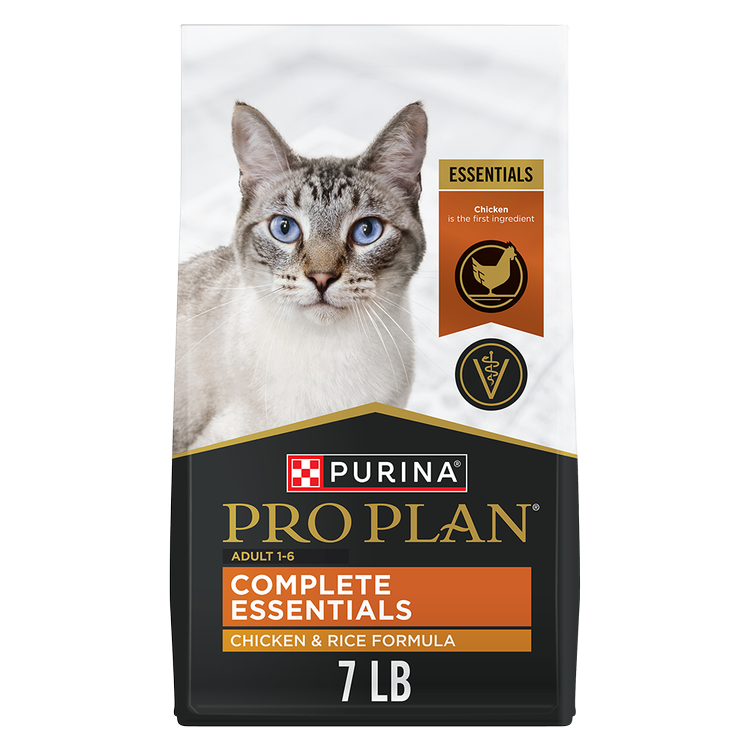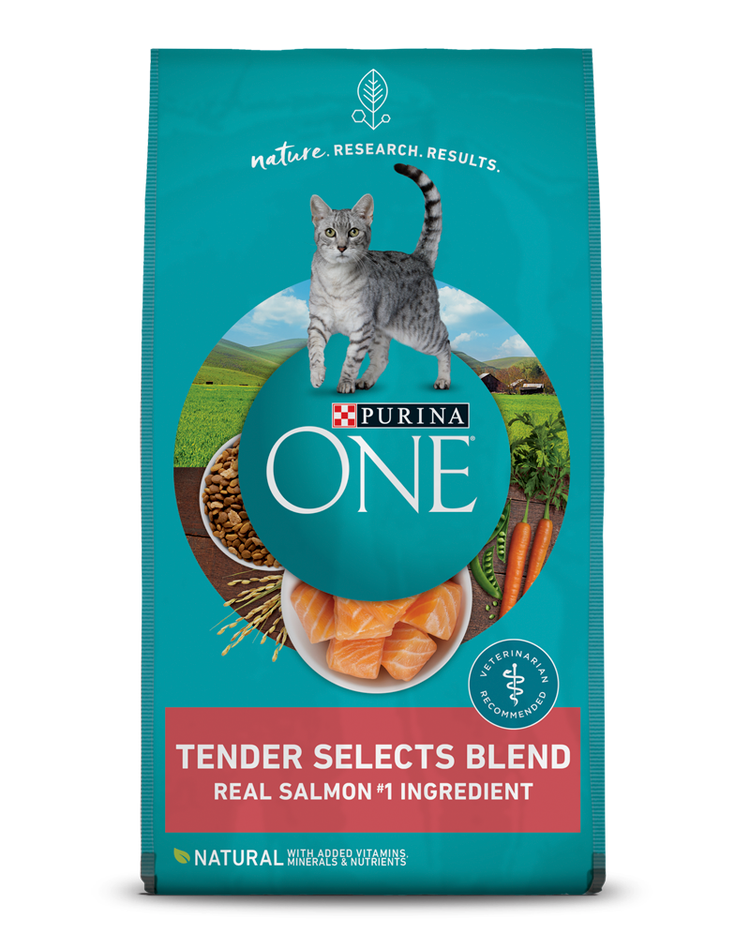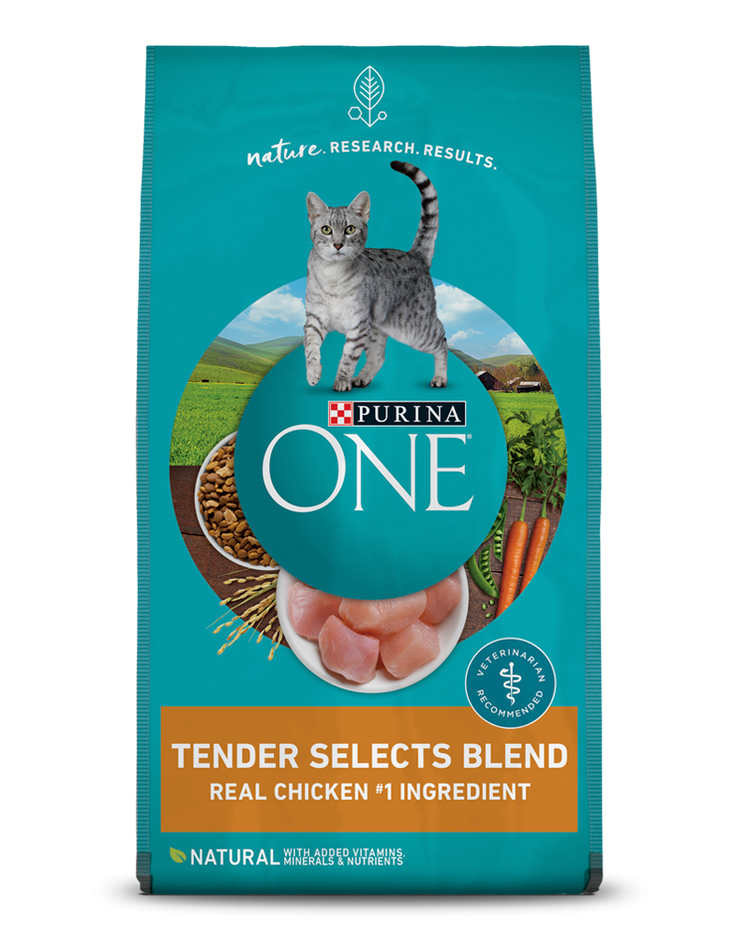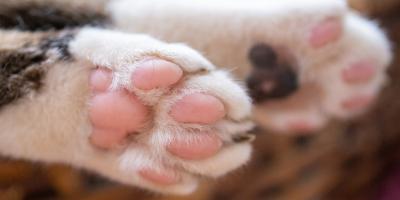Gastroenteritis in Cats: Causes, Symptoms & Treatments


It’s worrying when our furry friends become ill. When your cat experiences unexpected signs of illness, such as vomiting, diarrhea, or loss of appetite, be sure to bring her to your vet without delay.
Generally, these are symptoms of gastroenteritis. A vet visit is needed because vomiting and diarrhea can lead to dehydration and electrolyte imbalance. These symptoms can be a sign of a serious condition. Delaying a vet visit may result in a very sick kitty.
All cats can develop gastroenteritis, and there are a multitude of causes, ranging from introducing a new food too quickly to more serious conditions such as an underlying disease.
What is Gastroenteritis in Cats?
Gastroenteritis is when your stomach and intestines become irritated and inflamed, leading to symptoms like stomach pain, diarrhea, and vomiting. It is commonly used to describe a condition where a cat experiences sudden episodes of vomiting and/or diarrhea often accompanied by a reduced appetite.
When the inflammation is isolated to the stomach, it is known as gastritis, and when the inflammation is in the colon, it’s called colitis.
A precise diagnosis of gastroenteritis requires a biopsy from the lining of the stomach or intestines. However, vets often base their suspected diagnosis and treatment plan on a similar set of clinical signs without a biopsy. In that case, the condition is technically known as acute gastroenteropathy.
Depending on the symptoms and medical history, the treatments for both gastroenteritis (confirmed inflammation) and gastroenteropathy (assumed inflammation) are similar. For the purposes of this article, we will refer to the condition as gastroenteritis.
What Causes Gastroenteritis in Cats?
The causes of gastroenteritis in cats are varied. Common causes include:
- Infectious cases such as bacteria, virus, parasites, or protozoa
- Eating something other than their pet food or a rapid change in diet
- Medications
- Hairballs
- Foreign objects
- Toxins
- Food intolerance or allergy
In addition, gastroenteritis in cats could be a secondary symptom of a more serious health concern, such as:
- Pancreatitis
- Liver disease
- Kidney disease
- Hyperthyroidism
- Inflammatory Bowel Disease
- Gallbladder rupture or inflammation
Your vet will be able to identify the cause of your cat’s digestive upset with testing and recommend the appropriate treatment.
Is gastroenteritis in cats fatal? With treatment, cats may recover quickly. But gastroenteritis can be life threatening depending on the cause. Without treatment, the condition can lead to death due to dehydration, infection, or an intestinal blockage.
Is gastroenteritis contagious? Certain causes of gastroenteritis, such as hairballs or a food allergy, are not contagious while others, such as infections caused by parasites, bacteria, or viruses can be spread to other animals. Until a diagnosis is made and you’re certain your cat is not contagious, isolating her is key to preventing transmission.
Can cats get stomach bugs? A stomach bug is a colloquial term for gastroenteritis caused by infection from bacteria or virus. Yes – as mentioned above – cats can get viral or bacterial causes of vomiting and/or diarrhea. While it is uncommon for humans to spread their stomach bug to cats and vice versa, it’s always best to isolate as best as possible, wash your hands, and treat the environment.
Cats can sometimes end up ingesting objects. Items like thread, rubber bands, hair bands, or tiny toys end up in their digestive tract and stools. If you suspect your cat has swallowed something they shouldn’t have, don’t hesitate to call the vet. The most common sign of a foreign body is vomiting, but also look for abdominal pain or symptoms such as lack of appetite, regurgitation, and constipation. Get your cat to the vet without delay.
Cat Gastroenteritis Symptoms
The primary signs of gastroenteritis are diarrhea and/or vomiting. The vomit may be slightly foamy and yellow in color. In addition, cats may also experience a decreased appetite. Other gastroenteritis symptoms in cats may include:
- Flatulence
- Lethargy
- Low grade fever
- Tender or painful abdomen
If your cat is showing any of these additional signs and symptoms, or if the diarrhea and vomiting persist for more 24 hours, contact your vet immediately.
Diagnosing Gastroenteritis in Cats
Your vet will conduct a comprehensive exam and ask about your cat’s medical history. Be prepared to answer questions about your cat’s feeding schedule, food and treats, recent activities, and whether he or she has been exposed to anything out of the ordinary prior to the onset of symptoms.
Your vet will need a stool sample to check for parasitic, bacterial, or fungal infections. X-rays or an ultrasound may be necessary to identify other causes. Blood tests will help your vet identity any underlying conditions, such as kidney disease, liver disease, and hyperthyroidism, that may be contributing factors to your cat’s illness.
Cat Gastroenteritis Treatments
Treatment for gastroenteritis in cats depends on the cause and severity of the condition. Your vet may prescribe antiemetics, which are medications used to treat nausea and vomiting, antidiarrheals to alleviate diarrhea, probiotics to restore healthy gut flora, anti-inflammatory medications to relieve any pain, and fluid therapy to prevent dehydration.
If the gastroenteritis was caused by an infection, your vet may prescribe antibiotics, antifungal, or antiparasitic medications. Always follow your vet’s instructions and complete the course of medication even if symptoms resolve early.
Your vet might prescribe a special diet that is formulated for gastroenteritis. If your vet is suspicious that a food allergy might be playing a role in your cat’s illness, then she may recommend a special diet that is formulated to be hypoallergenic.
When gastroenteritis is caused by a blockage, your cat may need surgery. Linear foreign bodies caused by string ingestion are especially serious in cats. Be on the lookout for any potential ingestion of nonfood items by your cats.
While it might be tempting to read about home treatments for cats with gastroenteritis on the internet, it’s important to check with your vet first before potentially doing more harm than good.
Preventing Gastroenteritis in Cats
While gastroenteritis cannot be prevented in all cases, there are things you can do to help. Keep your cat in a clean environment and away from pets with unknown health conditions.
When starting a new diet, introduce it slowly by adding the new food to the original diet gradually over 7-10 days. The same goes for treats and supplements – introduce them slowly.
If your curious cat wants to investigate everything and likes to eat things he or she shouldn’t, be sure to keep those items out of reach.
Schedule regular vet visits for fecal screenings and bloodwork, and always keep your cat up to date on vaccines. Be sure to use protection against fleas and ticks – which can also spread disease. Talk to your vet if you have an outdoor kitty who hunts and might have increased exposure to infectious cases of gastroenteritis.
Want more cat health tips? Get advice from our experts with our other cat health articles.
Related articles

Be Rewarded for Your Purina Purchases
Earn and redeem points for Purina products with myPurina app.






